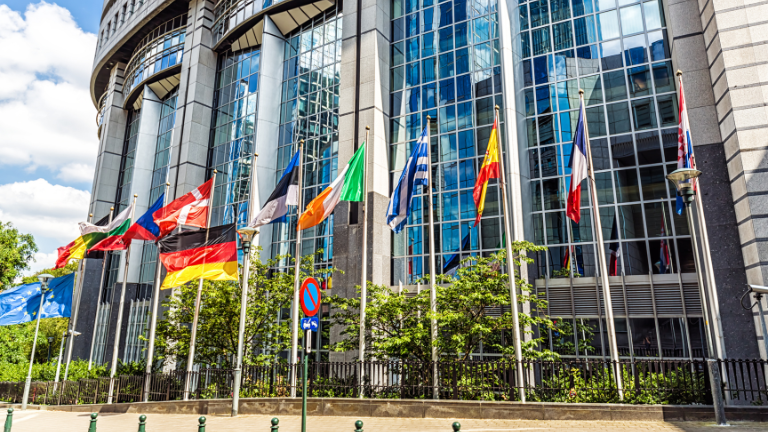European Parliament
Towards a European Public Sphere: Interview with Damian Boeselager

Interview by Amely Rechberg
On May 3, the European Parliament adopted a legislative initiative report that each voter should have two votes in future European elections. What changes would this bring?
Having two votes in useful if you want to build a real European democracy. Until now - and for more than 40 years - there have only been 27 national elections to the European Parliament in the European Union. There was no real European election. But with a European second vote and uniform European lists, all citizens can vote for European parties. It will also make it possible to hold MEPs politically accountable. We are thus taking another step towards a European public sphere.
How does the path towards this European public sphere look like?
The European public is created when we have common parliamentary democracy. European elections can thus be an element that unites the nations, if people across Europe can vote on the same parties, their programs and if this then has an effect on the European government, that is, on the European Commission. Consecutively, I expect that people as well as the media will be more concerned with the European dimension of elections than they have been so far. Media coverage today tends to focus on the different opinions of the member states rather than on the positions of European parties and political currents. Too often, we distinguish between the governments in the capitals and the European Commission, rather than between liberal or social democratic positions.
What is the biggest problem Europe currently faces?
Europe is facing many problems: the Russian invasion of Ukraine, the climate crisis, the still inhumane asylum system, the poor scalability of digital solutions, etc. However, the EU's biggest problem is that we are not dealing with these challenges well enough. This is because the EU is still, at its core, an intergovernmental organization - 27 heads of government have to decide unanimously on the most important issues. This makes the EU sluggish and non-transparent. We urgently need to ensure that the EU becomes capable of making decisions.
What can be done?
This will only work if we function like a normal democracy. To achieve this, we need a government elected via the European Parliament that is capable of making decisions and taking action and that can be replaced either immediately in the event of gross errors or within a certain period of in the event of minor errors. The second chamber of the EU, the Council, should function like a kind of Federal Council or American Senate, but not, like now, merely as a permanent veto power. To achieve this, we must change the EU, reform it. Once that is done, we will also be able to tackle the great challenges of our time.
Is the European Parliament actually political enough?
In all parliamentary debates, there are fundamental political divergences between conservative, social democratic, green and liberal positions. This has always been the case, including in the debates on the recovery instrument when Covid-19 hit us, the Digital Governance Act, regulation of the European Asylum Agency, and voting rights. However, we need to do a better job of bringing these controversies to the public, so that the exchange of political views in the Parliament is heard beyond Brussels and Strasbourg. But even that is not enough. As I said, we need to make the EU a true parliamentary democracy. We can only achieve that through an ambitious reform of the treaties.
What lessons can be learned from the conference on the future of Europe?
It has given us a unique opportunity, and we should use the opportunity to make the EU more agile and transparent. We must enable it to manage its own budget, which can be used for social, health, economic and security policy problems. We also need to think about how to better organize access to the European Union for new EU countries and ensure that all members truly represent the values and ideals of the Union. The fact that Europe has been more or less unable to act in crises for 20 years is a clear signal that it is time to change. We must not waste this opportunity.
What is the difference an individual MEP can make?
The experiences I had so far were generally positive. You can achieve an incredible amount as an individual in the European Parliament if you make an effort. Unlike in national parliaments, you can actually help write laws and thus achieve systemic changes throughout the EU. This requires a deep learning curve, but it’s also enjoyable. I can only recommend everyone to become politically active and help shape our society in this way!
Damian Boeselager is a member of the European Parliament. He founded the first pan-European party Volt Europa in 2017 together with Andrea Venzon from Italy and Colombe Cahen-Salvador from France. In the 2019 European elections, Volt Germany won one of the 96 German mandates with 0.7 percent of the vote.
This text was orginally published in German.
